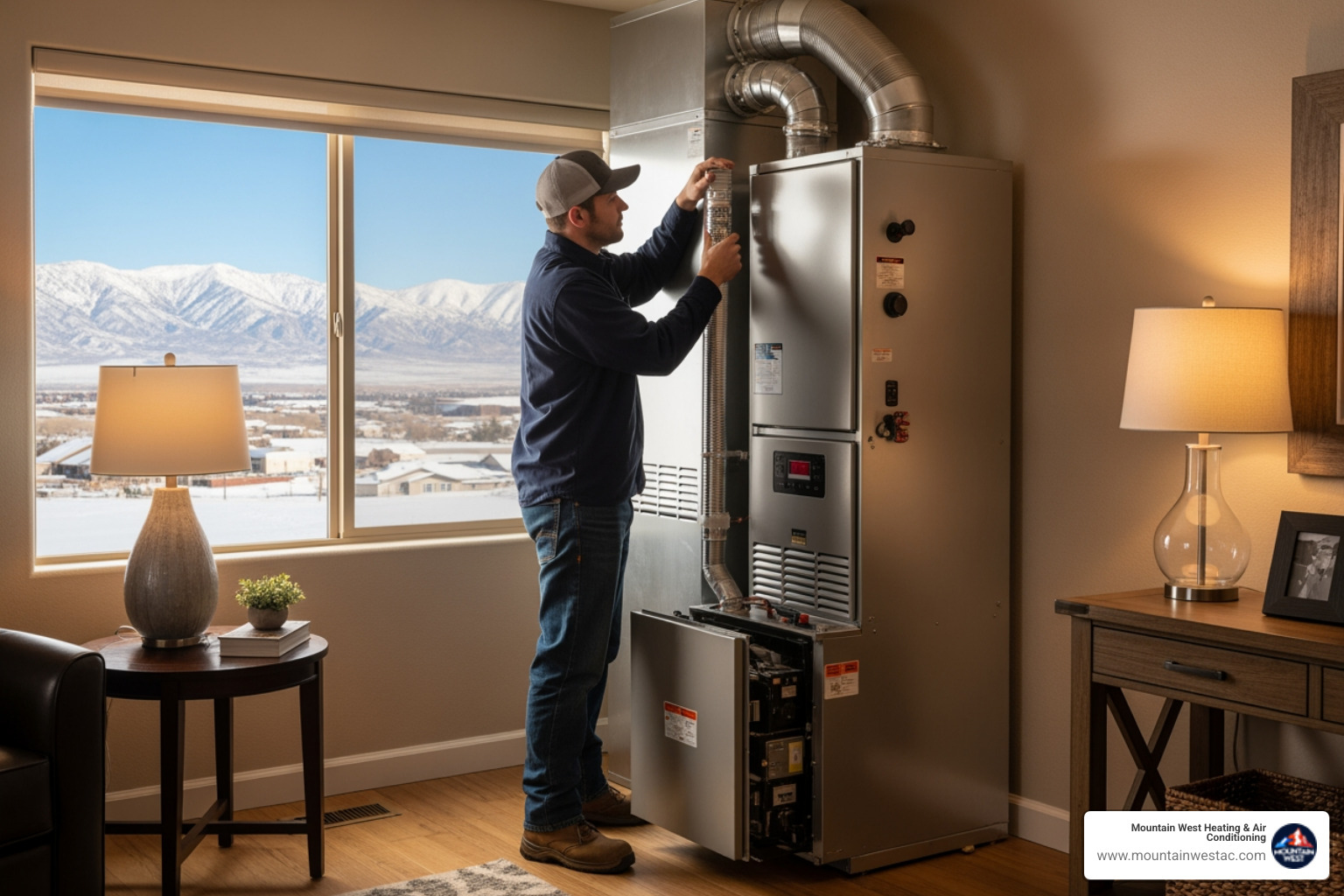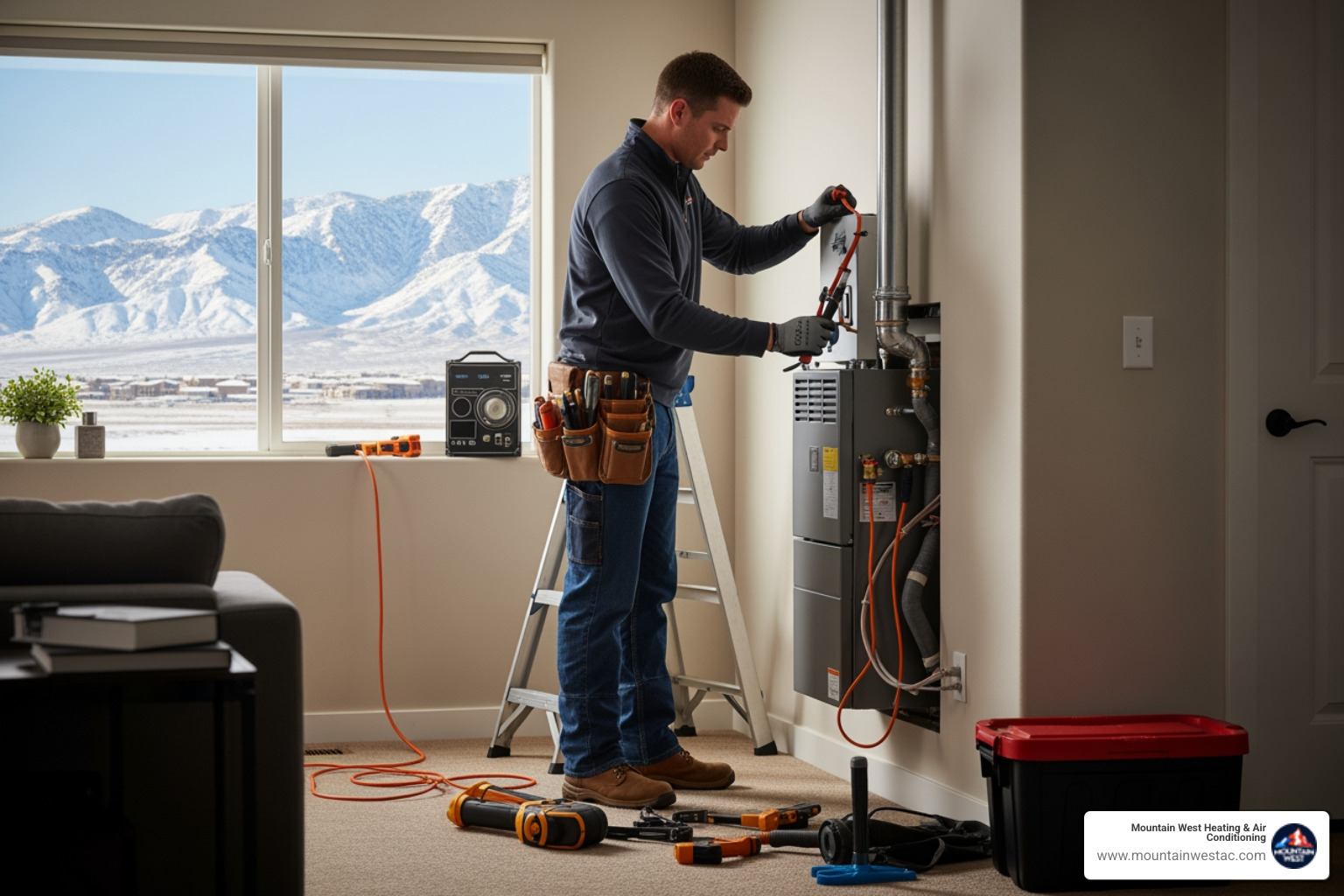Many homeowners experience unpleasant smells from their air conditioning systems, especially after periods of disuse. The most common causes of bad AC smells include mold and mildew growth, full drain pans, dirty evaporator coils, and excess moisture in ducts. These issues often develop over time due to normal condensation that occurs during the heating and cooling process, creating perfect conditions for mold to thrive.
Sometimes the smell might indicate more serious problems like leaking gas or an overheating motor. Identifying the specific type of odor can help determine the cause and the appropriate solution. We'll explore these common AC smell issues and how to address them in this article.
Common Causes of Unpleasant AC Odors
When your air conditioner starts emitting unpleasant smells, it usually points to specific problems that need attention. Understanding these causes can help you take appropriate action to eliminate the odors and maintain a healthy home environment.
Bacterial and Mold Growth
Mildew and mold are the most common culprits behind bad AC smells, as these organisms thrive in dark, moist environments like the inside of your air conditioning system. When your AC isn't cleaned regularly, microbial growth can develop on damp surfaces. The evaporator coil is particularly susceptible to mold growth. This component naturally collects condensation during normal operation. If this moisture doesn't drain properly, it creates ideal conditions for mold and mildew to flourish.
Dirty filters can also harbor mold and bacteria. Over time, dust and organic matter collect on filters, providing food for microorganisms when combined with moisture. This often creates a musty or stale smell that circulates throughout your home.
Issues with the AC System
A refrigerant leak often produces a sweet or chemical smell, which requires immediate professional attention as refrigerants can be harmful. Also, clogged drain lines can create stagnant water around your unit. When this water sits for too long, it develops a sewer-like smell. Regular maintenance helps prevent these blockages from forming.
Burning smells typically indicate electrical problems or overheating components. This might be due to worn-out parts, electrical shorts, or a motor that's working too hard. If you notice a burning rubber odor, turn off your AC immediately and call a technician.
External Factors Contributing to Bad Smell
Sometimes the bad smell isn't coming from inside the AC system but is being pulled in from outside. Dead animals near your outdoor unit or in your ductwork can cause powerful rotting odors that circulate through your home.
Household chemicals can interact with the copper and aluminum in your evaporator coil, creating unusual smells. Products like cleaning supplies, air fresheners, and even personal care items can contribute to this chemical reaction.
Gas smells around your AC might not be from the unit itself, but could indicate a gas leak nearby that's being distributed through your ventilation system. This requires immediate professional inspection for safety.
Diagnosis and Identification
Finding the source of your AC's bad smell requires careful examination of different components. The right diagnosis helps determine whether you can fix the issue yourself or need professional help.
Assessment of the AC System
Start by examining the most common areas where odors develop. First, check your cabin air filter, which should be replaced every 15,000-30,000 miles. A dirty filter can harbor mold and mildew, causing musty smells when your AC runs.
Next, inspect the drain pan under your evaporator coil. If it's full of water or has visible mold growth, this is likely causing the smell. The evaporator coil itself can develop mold when moisture accumulates on its surface. Look for excess moisture in the air ducts and vents, too, shining a flashlight into accessible vents to check for visible mold or mildew growth. A moldy or musty smell often indicates moisture problems somewhere in the system.
Solutions and Prevention
Fixing a smelly AC requires targeted cleaning and regular maintenance. The right methods can prevent mold growth and keep your system running smoothly.
Effective Cleaning Methods
Start by turning off your AC system before any cleaning. Remove and wash the air filter with warm, soapy water every 1-2 months. Let it dry completely before reinstalling. For deeper cleaning, use a specialized AC coil cleaner on the evaporator coils. These cleaners break down buildup without damaging the system. Spray the solution and let it work for 10-15 minutes.
Don't forget the condensate drain line. Pour a cup of white vinegar or bleach solution through it monthly to prevent clogs and kill mold. Lysol or similar disinfectant sprays can also help eliminate odor-causing bacteria. Spray a small amount into the air intake vents while the system runs in fan mode.
Maintaining Air Quality
Take measures to control moisture levels in your home with a dehumidifier. Keeping humidity below 50% discourages mold and mildew growth in and around your AC system. Also, consider installing UV lights in your home AC system to kill airborne microorganisms before they circulate through your vents.
When not using your AC for extended periods, run it on fan-only mode for 30 minutes weekly. This prevents moisture buildup and stagnant air that leads to musty odors. Probably most importantly, schedule professional maintenance annually. Technicians can clean hard-to-reach areas and check for refrigerant leaks that might cause unusual smells.
Get in touch to arrange a professional inspection of your AC system.









